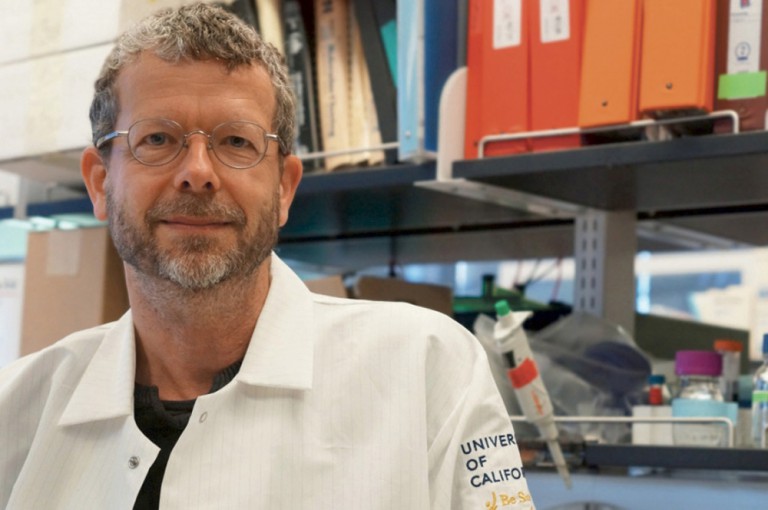
Quincy Lee
Staff Writer
“Doing something new and discovering something that nobody knows yet. It makes the work fascinating.” This ability to discover is what Thomas Weimbs enjoys about his research at the University of California, Santa Barbara.
Thomas Weimbs has been advancing the knowledge of human body functions since he was an undergraduate. Obtaining his doctorate in biochemistry from the University of Cologne in Germany, Weimbs started his research career studying myelin in the central nervous system.
This line of study was only the beginning of his career. The discoveries he obtained only led to more mysteries. “Every answer you get leads to even more questions,” Weimbs explained.
Continuing his work, Thomas came to the United States. His drive to gain experience as a researcher brought him to the Cleveland Clinic. At the top ranking institution, Weimbs collaborated with leading members within the biochemistry department to further scientific knowledge.
This is where Weimbs’ started his major focus: studying autosomal dominant polycystic kidney disease (PKD). “I was approached by a family who had been directly affected by the disease,” said Weimbs. “As strong supporters of the Cleveland Clinic, they funded my research on the issue.”
Currently, there is no cure for PKD. It is estimated that 600,000 people are affected by the disease. With kidney transplant as the only option for many people, he knew knowledge about the disease was pertinent.
After years of experimentation with Cleveland Clinic, Weimbs had discovered the effects of the disease, how cysts form in the kidneys and the resulting defects in bodily function. But, as he pointed out, this only led to more questions. How can symptoms be treated? Is there a way to mitigate the effects?
These questions brought Weimbs to UCSB, where he hopes to continue searching for possible remediation to the disease. Working with the Molecular, Cellular and Biological Development Department (MCDB), the Weimbs Laboratory strives towards understanding the mechanisms behind PKD and developing possible treatments.
This January, Weimbs’ lab published conclusive data in the American Physiological Society connecting a small reduction of food intake to diminishing the effects of the disease. These results stem from extensive study on mice within the lab.
As a leading research institution, UCSB offers many positions for undergraduates to assist professors in research such as this. “I recommend that students obtain research positions as undergraduates,” Weimbs suggests, “as this can be one of the most valuable educational experiences we can offer.”
Weimbs notes that research and experimentation are not routine, and require practice and time to obtain the necessary skills. “Speaking from experience, this is one of those instances where practice really does make perfect,” he said.
Thomas Weimbs welcomes students interested in getting hands-on experience in their desired field of study. The Weimbs Laboratory, particularly, gives students the chance to expand their knowledge of molecular, chemical and biological process with real-time and applicable scenarios.
Weimbs started as a young researcher and has advanced the field of biochemistry with his studies. He is more than willing to help students do the same, so that both can take part in the newest discovery. Weimbs hopes to make an impact on the health of several thousand people suffering from PKD while working with UCSB students in the process.










